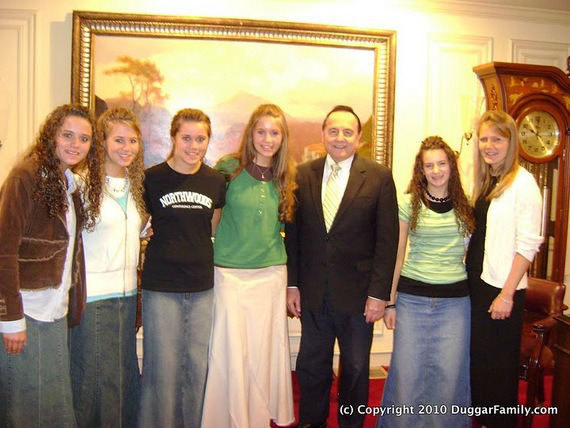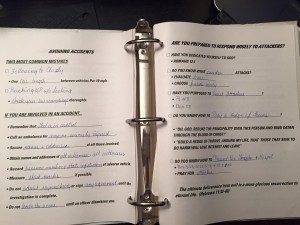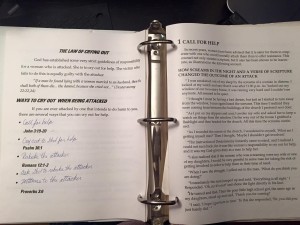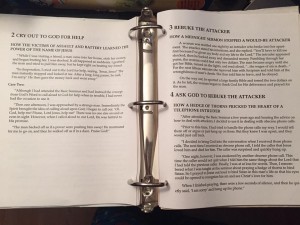Today’s guest post is from Physics & Whiskey, who blogs about his journey away from absolute certainty and toward endless curiosity at Science and Other Drugs. “Learning the Words” is a series on the words many of us didn’t have in fundamentalism or overly conservative evangelicalism– and how we got them back. If you would like to be a part of this series, you can find my contact information at the top.
As far as fundamentalist homeschooling families go, mine was fairly average. We saw a lot of families that were definitely more extreme. Growing up, I felt like my parents had balanced everything out fairly well. They swallowed the Pearls’ teachings on discipline hook, line, and sinker, but they shied away from the patriarchal teachings. All of us envied the sense of community in the local ATI group, but we knew there was something a little off about the whole business. My dad preferred the KJV, but we recognized that the KJV-only dogma of most Independent Fundamental Baptists were ridiculous.
We sampled a little here and a little there, never entirely diving into any one system or group or ideology. Perhaps that’s why the word I’m most thoughtful about is wisdom.
“The beginning of wisdom is this: Get wisdom, and whatever you get, get insight.” (Proverbs 4:7)
Growing up, this passage always seemed tautological. “In order to get wisdom, get wisdom.” Boy, that sure tells us a lot. Of course, the presupposition of Biblical Literalism obscured the poetic depth of many such passages, but still, it was puzzling.
In our family, wisdom had a very specific meaning. Wisdom was a special piece of knowledge or insight provided by the Holy Spirit apart from any epistemic process.
Epistemology is the study of how we acquire knowledge our information. For example, empirical (observational) epistemology says that we use our senses to arrive at most or all knowledge. An epistemic process is a pathway to making a claim; it follows the basic principles of logic and reason and includes both premises and arguments. Because it has all these elements, a statement based on an epistemic process can be questioned, debated, and ultimately understood.
But wisdom was something different. A piece of wisdom couldn’t be questioned or argued or analyzed. It came from God, so it just had to be accepted. You weren’t allowed to understand wisdom; you just had to follow it.
In practice, this meant that whatever insight my parents gleaned (either from the Bible or from a fundamentalist parenting book or from a pastor or from special revelation during prayer) could not be questioned. According to fundamentalist belief, parents had a special connection to the Holy Spirit which allowed them to make the right decision 100% of the time, as long as they were “trusting God’s Word.” They didn’t have to understand it, they just had to apply it and believe that it would yield positive results. “No chastening seems to be joyful for the present, but painful; nevertheless, afterward it yields the peaceable fruit of righteousness to those who have been trained by it.”
Labeling intuition or church dogma as wisdom essentially made it God’s Word; since God is the source of all wisdom, questioning anything labeled as wisdom was tantamount to questioning God. Worst of all, not even my parents were permitted to question it. If my mom said something was wisdom, my dad was duty-bound to defend it; if my dad said something was wisdom, my mom had to do the same. Wisdom could be invoked at any time to end any discussion. If you continued to protest after wisdom had been invoked, the full weight of Proverbs was brought to bear.
“Fools despise wisdom and discipline.”
“He who disdains instruction despises his own soul, but he who heeds rebuke gets understanding.”
“A fool despises his father’s instruction, but he who receives correction is prudent.”
“A wise son makes a glad father, but a foolish son is the grief of his mother.”
Oh, and here’s my personal favorite. Any time we tried to defend ourselves: “The way of a fool is right in his own eyes, but he who heeds counsel is wise.” In other words, shut up and face the consequences; the more you try to explain, the more foolish you are.
I say “favorite” with my tongue planted firmly in my cheek, because nothing could be further from the truth. Even now, I’m having trouble glancing through the book of Proverbs. These passages bring back a lot of difficult memories. My heart is racing and I have a sick feeling in the pit of my stomach. Wisdom is hard for me to talk about. I can feel the nervous panic of sitting in my parents’ room waiting and waiting because I had made the painful mistake of “despising wisdom.”
The irony was that fundamentalists prize the doctrine of “solo“ scriptura to an extreme degree. Scripture is supposed to be 100% sufficient– except when it’s not, and you need to add wisdom to properly round it out. This practice is hard to spot, especially since most “wisdom” consists of Bible verses pulled out of their context and applied liberally to the current situation.
Wisdom was a way of cementing parental authority. “Do not despise the chastening of the Lord, nor detest His correction.” To question a parent’s wisdom was to rebel against God. It was our responsibility to simply pray until God gave us the same wisdom he had already given our parents.
So it’s easy to see how I might be a little hesitant about using the word “wisdom” now.
“The Son of Man came eating and drinking, and they say, ‘Look at him! A glutton and a drunkard, a friend of tax collectors and sinners!’ Yet wisdom is justified by her deeds.” (Matthew 11:19)
Growing up, wisdom couldn’t be questioned. Wisdom was a guarantee of results. You simply applied it, and it always worked. No matter what.
But in Matthew 11, Jesus says: “Wisdom is justified by her deeds.” Even Jesus, who metaphorically embodied wisdom, didn’t act as though he was above question. He didn’t say, “I have divine wisdom on my side, so I’m right no matter what.” No, he said that wisdom was identified by what it actually did, not where it came from. If actions bear good fruit, they were wise; if actions bear bad fruit, they were unwise.
Wisdom isn’t magical. It’s the result of experience and reflection. If something works, it’s wise; if not, it isn’t.
If I want to be a wise father to my son, I can’t depend on “wisdom” as a fall-back that will guarantee the proper results if I don’t know what I’m doing. Finally, I understand what Proverbs 4:7 means: In order to be wise, I have to get wisdom. I have to pay attention to what works and what doesn’t; I have to be willing to change if my intuitions are leading me the wrong way.
“Test everything; hold fast to what is good.”
That’s wisdom.







